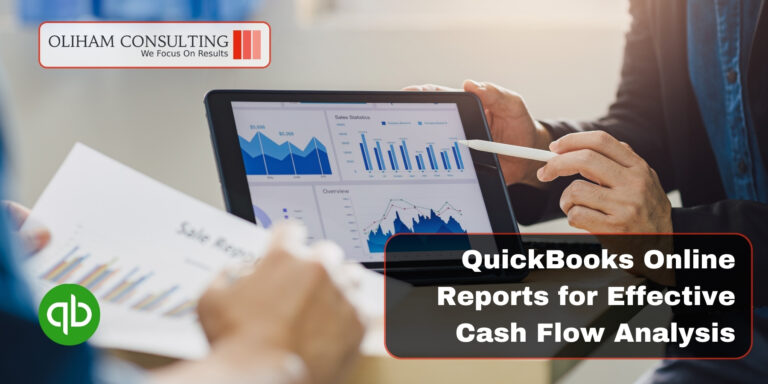Introduction: The Importance of Tracking Your Finances as a Freelancer
As a freelancer, managing your finances is crucial for maintaining a stable and successful career. Unlike traditional employees, freelancers have unique financial responsibilities and challenges. From tracking income to managing expenses, freelancers must take proactive steps to ensure their financial stability.
Step 1: Setting Up a Separate Bank Account and Payment System
Setting up a separate bank account and payment system is a crucial step for freelancers looking to manage their finances effectively. By having a dedicated freelance bank account, you can keep your personal and business transactions separate, ensuring better organization and simplifying tax filings.
One of the first things you should do is open a separate business account specifically for your freelance income and expenses. This will not only help you track your earnings more accurately but also make it easier to calculate your business-related deductions during tax season.
Having a separate bank account also adds a layer of professionalism to your freelance business. It allows you to provide clients with clear payment instructions and ensures that all financial transactions related to your work are transparent and easily traceable.
When choosing a payment system for freelancers, consider platforms that offer secure and convenient options for both domestic and international transactions. Look for features such as invoicing capabilities, multiple currency support, and seamless integration with accounting software.
Step 2: Creating a Detailed Budget and Expense Categories
Creating a detailed budget is an essential step for freelancers to effectively manage their finances. By allocating funds to specific expense categories, freelancers can gain better control over their income and expenses, ensuring financial stability and growth.
When it comes to expense categories for freelancers, it is crucial to consider both personal and business-related expenses. Personal expenses may include rent or mortgage payments, utilities, groceries, healthcare costs, and transportation. On the other hand, business-related expenses encompass marketing and advertising costs, office supplies, equipment or software subscriptions, professional development courses or workshops.
To simplify the budgeting process and track expenses efficiently, freelancers can leverage various budgeting tools specifically designed for their needs. These tools offer features such as expense categorization, automated tracking of income and expenditures, visual representations of financial data through charts or graphs.
By utilizing these budgeting tools tailored for freelancers’ unique requirements, individuals can gain a comprehensive overview of their financial situation while saving time and effort in managing their finances. This enables them to make informed decisions about allocating resources effectively and maximizing their earning potential as independent professionals.
Step 3: Keeping Track of Income and Invoices
As a freelancer, keeping track of your income and managing invoices is crucial for maintaining financial stability and ensuring timely payments from clients. Fortunately, there are several effective strategies and tools available to streamline this process.
One of the key aspects of freelancer income tracking is maintaining a detailed record of all your earnings. This includes not only the amount received from each client but also the date of payment, project details, and any additional expenses incurred. By diligently documenting this information, you can easily monitor your cash flow and identify any discrepancies or outstanding payments.
In addition to meticulous record-keeping, utilizing an invoice management system specifically designed for freelancers can greatly simplify the invoicing process. These tools enable you to create professional-looking invoices with ease, customize them according to client requirements, and automatically send reminders for overdue payments. Moreover, they provide a centralized platform where you can track the status of each invoice – whether it’s been sent, viewed by the client or paid.
Step 4: Monitoring Expenses and Deductible Business Expenses
As a freelancer, it is essential to keep detailed records of all your business-related expenses. This includes everything from office supplies and equipment to travel and marketing costs. By diligently tracking these expenses, you can accurately determine which ones are eligible for tax deductions.
Understanding deductible business expenses is key to optimizing your tax returns. As a freelancer, you may be eligible for various deductions such as home office expenses, professional development courses, software subscriptions, and even a portion of your internet and phone bills.
By staying informed about the specific deductibility rules in your country or region, you can ensure that you are claiming all the eligible deductions available to you. This not only helps reduce your taxable income but also provides valuable financial relief for freelancers who often face unique challenges when it comes to managing their finances.
In conclusion, by actively monitoring your expenses and taking advantage of deductible business expenses, you can effectively manage your finances as a freelancer while maximizing potential tax savings.
Step 5: Utilizing Financial Management Tools and Software
One of the key aspects of successful freelance finance is choosing the right tools that cater specifically to the needs of freelancers. There are numerous finance software options available that are designed with freelancers in mind. These software solutions offer features such as expense tracking, invoicing, time tracking, and project management capabilities, all tailored to meet the unique requirements of freelancers.
By utilizing finance software for freelancers, you can automate mundane tasks like bookkeeping and invoicing, allowing you to focus more on your core skills and client projects. These tools provide a centralized platform where you can easily track your income and expenses, generate professional invoices, manage client payments, and even generate financial reports for tax purposes.
Additionally, accounting software for freelancers provides valuable insights into your financial health by offering real-time updates on cash flow, profit margins, and overall business performance. With access to this crucial information at your fingertips, you can make informed decisions regarding pricing strategies or budget allocation.
Furthermore, these tools often come equipped with integrations with popular payment gateways or banking institutions. This enables seamless synchronization between your financial transactions and records without the need for manual data entry.
In conclusion, utilizing freelancer finance tools and software is an essential step towards efficient financial management as a freelancer. By leveraging these specialized solutions tailored to meet your specific needs as a freelancer – from expense tracking to invoicing – you can save valuable time while ensuring accuracy in managing your finances effectively.
Conclusion: Take Control of Your Freelancer Finances with Effective Tracking Strategies
Please note that while I have provided some keywords in the outline above to optimize the blog post for search engines (SEO), it’s always important to focus on creating valuable content that provides useful information to your readers.





